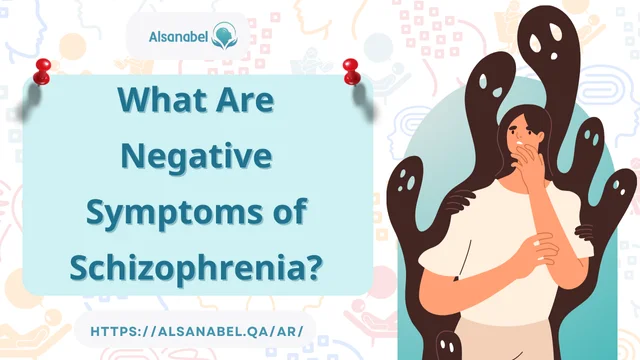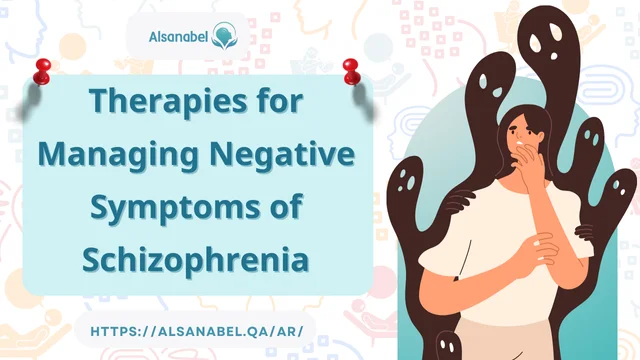
Schizophrenia is a complex mental health disorder that affects how individuals perceive reality. While many people are familiar with the positive symptoms of schizophrenia, such as hallucinations and delusions, the negative symptoms of schizophrenia can be equally, if not more, debilitating. Negative symptoms refer to a reduction or absence of certain normal functions and behaviors, which significantly impact daily life and functioning.
What Are Negative Symptoms of Schizophrenia?
Negative symptoms of schizophrenia are the absence or reduction of typical behaviors and emotions. These symptoms can make it difficult for individuals with schizophrenia to engage in everyday activities and maintain relationships. Some of the most common negative symptoms include:

- Affective flattening: This refers to a reduced range of emotional expression. Individuals with this symptom may appear emotionally “flat” or unresponsive.
- Anhedonia: The inability to experience pleasure from activities that would typically be enjoyable. This symptom can make it difficult for people to find joy in hobbies, socializing, or personal accomplishments.
- Avolition: A lack of motivation to initiate and persist in goal-directed activities, such as personal hygiene, work, or social engagements.
- Alogia: This symptom is characterized by reduced speech output or difficulty in having conversations. Individuals may answer in short, one-word responses or struggle to express themselves.
- Social withdrawal: Individuals may avoid social situations or have difficulty forming and maintaining relationships due to a lack of interest or emotional engagement.
How Do Negative Symptoms Differ from Positive Symptoms?
How do negative symptoms differ from positive symptoms in schizophrenia? While positive symptoms of schizophrenia add behaviors that are not normally present, such as hallucinations, delusions, or disorganized thinking, negative symptoms involve the absence of typical behaviors and functions. For example:
- Positive symptoms: Hallucinations (hearing voices or seeing things that aren’t there), delusions (false beliefs), and thought disorders (disorganized thinking).
- Negative symptoms: Emotional flatness, lack of motivation, and social withdrawal.
Negative symptoms are often more challenging to identify and treat than positive symptoms. They can persist even when positive symptoms are under control, and they have a greater impact on an individual’s ability to function independently in daily life.
How Do Negative Symptoms Affect Daily Life?
Negative symptoms of schizophrenia can significantly impair a person’s quality of life. For example:
- Difficulty with daily tasks: A person with avolition may struggle to complete even basic activities like showering, cooking, or managing household chores.
- Social isolation: Social withdrawal and emotional flatness make it hard for individuals to form meaningful relationships, leading to feelings of loneliness and isolation.
- Employment challenges: A lack of motivation and interest in activities can result in difficulty maintaining a job or pursuing education, which affects long-term financial stability and career development.
- Impact on mental health: Over time, negative symptoms can contribute to depression, anxiety, and other mental health issues, further complicating the individual’s condition.
Addressing these challenges requires a comprehensive approach, including medical treatment and psychosocial support from Professional like Dr. Sanabel Al Akras .
Can Negative Symptoms of Schizophrenia Be Treated Effectively?
Treating negative symptoms is often more difficult than managing positive symptoms. Traditional antipsychotic medications primarily target positive symptoms, and while they can stabilize some aspects of schizophrenia, their effect on negative symptoms is limited.
However, recent developments in schizophrenia treatment focus on addressing negative symptoms through various methods:
- Medications: Atypical antipsychotics are sometimes used to treat negative symptoms, although their effectiveness can vary. Researchers are also exploring new medications that target the cognitive and emotional deficits associated with negative symptoms.
- Cognitive-behavioral therapy (CBT): CBT can help individuals develop coping strategies to manage negative symptoms. For example, therapy may focus on setting small, achievable goals to help individuals regain motivation and engagement in daily activities.
- Social skills training: This therapy helps individuals develop and improve their social interactions, making it easier to form and maintain relationships.
- Rehabilitation programs: Vocational and occupational rehabilitation programs are designed to help individuals with schizophrenia develop life skills, find employment, and build social connections.
Therapies for Managing Negative Symptoms of Schizophrenia
A holistic treatment approach at Al Sanabel Specialized Psychiatric Center In Qatar that combines medication, therapy, and support can be effective in managing negative symptoms. Some of the most beneficial therapies include:

- Cognitive remediation therapy (CRT): This therapy focuses on improving cognitive functions, such as memory, attention, and problem-solving, which are often impaired in individuals with schizophrenia.
- Psychoeducation: This involves educating individuals and their families about schizophrenia, helping them understand the disorder and the importance of sticking to treatment plans.
- Peer support groups: Engaging in support groups allows individuals to connect with others facing similar challenges. Sharing experiences and coping strategies can provide emotional support and reduce feelings of isolation.
- Bipolar disorder support in Qatar: For individuals who may have co-occurring conditions, such as bipolar disorder, accessing specialized support and integrated treatment can improve outcomes. Many mental health services, including those in Qatar, offer comprehensive care for individuals dealing with multiple mental health conditions.
Negative Symptoms of Schizophrenia FAQs
1. What are the main negative symptoms of schizophrenia?
The main negative symptoms of schizophrenia include affective flattening (reduced emotional expression), anhedonia (inability to feel pleasure), avolition (lack of motivation), alogia (reduced speech), and social withdrawal.
2. How do negative symptoms differ from positive symptoms in schizophrenia?
Negative symptoms involve the absence or reduction of typical behaviors (e.g., lack of motivation, reduced emotional expression), while positive symptoms involve the presence of abnormal behaviors (e.g., hallucinations, delusions).
3. Can negative symptoms of schizophrenia be treated effectively?
Negative symptoms are more challenging to treat than positive symptoms, but with a combination of medication, therapy, and rehabilitation programs, they can be managed to improve quality of life.
4. How do negative symptoms affect daily life?
Negative symptoms can make daily tasks difficult, lead to social isolation, impact employment, and increase the risk of other mental health issues, such as depression and anxiety.
5. What therapies are available for managing negative symptoms of schizophrenia?
Effective therapies for managing negative symptoms include cognitive-behavioral therapy (CBT), social skills training, cognitive remediation therapy (CRT), and psychoeducation, along with support groups and integrated care for co-occurring conditions like bipolar disorder support in Qatar.
Understanding the negative symptoms of schizophrenia is key to addressing the challenges they pose. While these symptoms can severely affect a person’s ability to function, treatment options, including medication, therapy, and support systems, are available to help individuals lead more fulfilling lives. With the right approach, those struggling with schizophrenia can improve their quality of life and manage the difficulties associated with negative symptoms.
